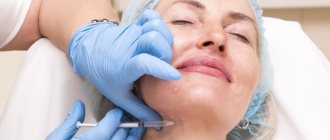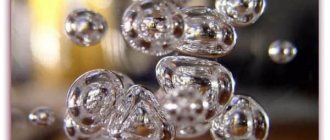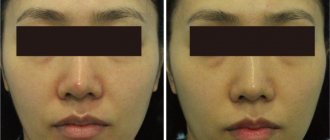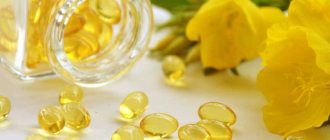Content
- What is hyaluronic acid?
- The use of hyaluronic acid in gynecology
- Effects of using hyaluronic acid
- Contraindications to the procedure
The world does not stand still, everything flows, everything changes. It would seem that those techniques that have been used for a long time in cosmetology have become absolutely acceptable in gynecology. Hyaluronic acid – what is it, where can it be used in gynecology, what effects can we expect from it? In this short article, we will try to understand these issues.
Types of hyaluronic acid
A hyaluronate molecule can have different weights and lengths depending on the number of fragments in its composition.
- Low molecular weight HA has a pronounced anti-inflammatory effect. This type of HA is able to penetrate into the deep layers of the skin; it is included in external products - tonics, creams, serums. It is important that when using hyaluronate, the air humidity is high, otherwise the effect will be the opposite of moisturizing. That is why, after applying HA to the skin, it is recommended to apply a moisturizing serum or cream on top. Short-chain hyaluronic acid can partially fill existing wrinkles, it improves skin elasticity and is used in the treatment of psoriasis, burns and other skin diseases.
- Medium molecular HA; Hyaluronate with a molecular weight of 100-500 kDa is used in injections, which are designed to trigger the synthesis of the body’s own hyaluronic acid and collagen. Medium molecular hyaluronic acid is also used for medical purposes, in particular in eye surgery and for the treatment of some forms of arthritis.
- High molecular weight HA; Hyaluronate with a molecular weight of 900 kDa has powerful antioxidant properties. In cosmetology, such HA is used to restore lost volumes and enhance skin hydration. The higher the molecular weight of HA, the more viscous the solution will be at low concentrations, which will cover a larger area of skin with a moisturizing film.
Where can and should hyaluronic acid be used in gynecology?
- Vaginal dryness, decreased elasticity of vaginal tissue.
- Discomfortable sensations in the vagina.
- Chronic irritation, itching.
- Chronic inflammatory processes in the vagina due to gaping of the genital slit.
- Decreased muscle tone and elasticity of the vaginal mucosa, which leads to decreased sexual activity, pain during intercourse, and difficulty achieving orgasm.
- Scars of the perineum and vagina in the postpartum period.
- Mild to moderate urinary incontinence syndrome, chronic cystitis.
- Loss of volume of the labia majora, their sagging, deformation, smoothing of the labia and clitoris.
Hyaluronic acid. About the pros, cons and application
Articles
Hyaluronic acid, also known as hyaluronan, is a clear, sticky substance that is produced by your body. The largest amount of it is found in the skin, connective tissue and eyes. The key function of hyaluronan is to retain water to keep your tissues well lubricated and hydrated.
Basic information about hyaluronic acid
Ingredient Type: Hydrator.
Main benefits: moisturizes the skin, reduces the appearance of wrinkles, replenishes cellular moisture, accelerates wound healing.
Safety: In general, hyaluronic acid is safe for all skin types, but is especially beneficial for those with dry skin. However, people with eczema should make sure that it does not irritate the skin.
When you can use it: Hyaluronic acid can be applied on, injected, or taken orally. Additionally, it is included in many dietary supplements and dietary supplements.
Works well with vitamin C, vitamin B5 and glycolic acid.
Hyaluronic acid is a molecule that is found naturally in your skin as well as connective tissue in the body. It is a natural polysaccharide found in the human body that acts as a shock absorber and lubricant for our joints, nerves, hair, skin and eyes.
Skin contains about half of the body's hyaluronic acid. It binds to water molecules, which helps keep the skin hydrated and elastic. Its level in the skin decreases significantly with age, which can lead to dehydration and the appearance of wrinkles. Supplementing with hyaluronic acid or using cosmetics containing it can improve skin hydration and reduce signs of aging.
Why is hyaluronic acid so popular?
The moisture-retaining properties of hyaluronic acid have led people to use it primarily for joint health and skin care. For joint health, it helps preserve synovial fluid. It is a fluid found in many of our joints that helps lubricate them and keep them moving effortlessly, without squeaking.
The acid also helps protect the skin and indirectly supports other aspects of health (tone, elasticity, etc.). Throughout the aging process, our skin loses moisture. It is often said that by age 50 we have about a quarter of the hyaluronic acid in our skin. Both joints and skin are problems that come with age.
Have questions about medications? Call and our consultants will answer! 8 (toll free)
Proven benefits of hyaluronic acid
- Promotes healthier, more elastic skin.
The reason the beauty industry loves it so much is because of its magical ability to lock in moisture. Research has proven that hyaluronic acid binds surprisingly well to water molecules to retain moisture in the skin. Lack of moisture is one of the main culprits of skin aging, which is why this ingredient is a must when it comes to restoring your skin's hydration.
Retains Moisture: Hyaluronic acid helps replenish and retain cellular moisture, resulting in hydrated, youthful, fresh skin.
Reduces the appearance of wrinkles: Since dehydrated skin is one of the main causes of wrinkling, hyaluronic acid replenishes lost moisture and helps reduce the appearance of any fine lines.
Safe option: Since the composition of hyaluronic acid is closely related to substances in our body, it works well and does not cause severe irritation.
Absorbs Fast: Unlike some skin care products, hyaluronic acid absorbs easily and gently. Its double effect is achieved if you take hyaluronic acid orally.
Non-irritating: safe for use by all skin types.
- May speed up wound healing
Hyaluronic acid also plays a key role in wound healing. It is naturally present in the skin, but its concentration increases when there is damage. Hyaluronic acid helps wounds heal faster by regulating inflammation and signaling the body to rebuild more blood vessels in the damaged area.
It also has antibacterial properties, so it may help reduce the risk of infection when applied directly to open wounds and taken orally.
- Relieves joint pain by keeping bones well lubricated.
This beneficial substance is also found in joints, where it lubricates the space between bones. When joints are lubricated, bones are less likely to rub against each other and cause unpleasant pain. Hyaluronic acid supplements are very beneficial for people suffering from osteoarthritis, a type of degenerative joint disease caused by wear and tear on the joints over time.
- Soothe stomach discomfort
New research suggests that hyaluronic acid supplements may help reduce symptoms of stomach and intestinal discomfort. It soothes the damaged mucous membrane of the esophagus and speeds up the recovery process.
- Relieve dry eyes
Approximately 1 in 7 working people suffer from dry eye symptoms due to constant computer use. Because hyaluronic acid is excellent at retaining moisture, it is often used to treat dryness. Hyaluronic acid supplements have been proven to reduce dry eye symptoms and improve eye health.
- Maintain bone strength
Two studies have shown that hyaluronic acid supplements may help slow the rate of bone loss and prevent osteoprosis.
Buy Collagen with Hyaluronic Acid on our website:
Inject or take orally?
Traditionally, hyaluronic acid has been used as an injectable to promote joint health and maintain joint structure. But these days, more and more dietary supplements with hyaluron are appearing, which can be taken orally and get a stable effect.
Research shows that oral hyaluronic acid is well absorbed and functions in at least three important ways:
1) part is absorbed intact;
2) some of it is broken down into its constituent sugars and absorbed that way (providing building blocks that the body can use to repair itself);
3) Hyaluronic acid acts to stimulate the growth of beneficial bacteria in the digestive tract, which helps strengthen the immune system and leads to overall healthy joints, skin and connective tissue throughout the body.
These three unique and distinct mechanisms of action illustrate the ability of oral hyaluronic acid to benefit and support the body's connective tissue. It has also been shown to act as a prebiotic as it increases the levels of lactobacilli and bifidobacteria in the intestinal tract.
Write to us on WhatsApp for any questions!
Possible side effects and precautions
Hyaluronic acid is generally safe to use. Since the body produces it naturally, allergic reactions are very rare. However, its effects during pregnancy or breastfeeding have not been thoroughly studied, so these groups should be careful when using dietary supplements with hyaluronic acid.
What effects can you expect from using hyaluronic acid?
The answer lies in the application point question. Where can it be applied? Effects:
- Hydration - moisturizing: we solve the problem of vaginal dryness, decreased vaginal elasticity, irritation and itching.
- Volume – we solve the problem of genital gaping, increase muscle tone, increase the elasticity of the mucous membrane, solve the problem of urinary incontinence, chronic cystitis.
- Treatment of sexual dysfunction as a consequence of solving the above issues.
- The effect lasts from 12 to 18 months.
How effective is hyaluronic acid?
There is an opinion that the use of HA in cosmetics is pointless - supposedly it only acts on the surface of the skin, since the size of its molecules is large. This is partly true - external cosmetic preparations with low molecular weight acid “work” on the surface of the skin. However, if you take hyaluronic acid orally, the body will be able to deliver it to its intended destination.
The regenerating properties of hyaluronic acid have been used for the benefit of people and animals for many decades, its effectiveness has been proven. In particular, HA has been used to treat arthritis since the 1970s by injecting it directly into the joint. HA is also actively used in ophthalmology - in the treatment of cataracts and corneal replacement.
Contraindicated in the presence of:
- genitourinary infection,
- changes in the mucous membrane,
- conditions after radiation therapy,
- mixed or urgent urinary incontinence. Urge urinary incontinence is a pathological condition when the patient often experiences a sudden urge to urinate, which she is unable to tolerate, and when, against the background of this intolerable urge to urinate, there is uncontrollable leakage of urine.
Sincerely, Laura Konstantinovna Olshanskaya , gynecologist
Make an appointment Return to list of publications
How it all started and what do cows, roosters and wheat have in common?
Until 1934, humanity knew nothing about hyaluronic acid, until the German biochemist Karl Meyer and his colleague John Palmer discovered this substance in the vitreous humor of a cow's eye. The scientists were very happy with their find, because it was a really interesting discovery. But the new polysaccharide pleased doctors even more, who found several successful ways to use hyaluronic acid.
The name “hyaluronic acid” is a combination of two terms – “hyalos” (from Greek “vitreous”) and “uronic acid”.
For several decades, hyaluronic acid has been tested and tested in a variety of ways, wanting to make sure that it cannot harm humans in any way. For a long time, it was extracted exclusively from animal raw materials, however, no longer from cow eyes, but from rooster combs, but, you see, this is also a so-so source. Fortunately for roosters (and conservationists), scientists later learned to obtain hyaluronic acid using an artificial method - using bacteria that arise during the fermentation of wheat. Already in the 70–80s, the first drugs based on hyaluronic acid officially approved for medical use were created. Further more.
Biological value
The biological role of Hyaluronic acid cannot be underestimated. Thanks to hyaluronic acid, the intercellular substance is formed in which the cells of the body function. It is in this environment that their division occurs, where nutrients enter the cells and their waste products are excreted.
About 50% of hyaluronate is found in the skin. Hyaluronic acid is involved in the synthesis of collagen and elastin, maintaining the youth and beauty of the skin. This substance has such a quality as hydrophilicity, thanks to this ability it binds moisture, which prevents its excessive loss by the body.
In addition to beauty, Hyaluronic acid is involved in the healing process of wounds, helps strengthen the immune system, protects tissues from premature aging, blocking the negative effects of free radicals.
If at a young age you notice dry skin, this is the main sign of an acute deficiency of hyaluronic acid. Appropriate measures must be taken as soon as possible.
Benefits for joints and ligaments
Hyaluronic acid is a real salvation for joints and ligaments; being an integral part of synovial fluid, it improves the sliding process of cartilage surfaces.
Hyaluronate is also one of the most important nutritional and regenerative components of hyaline cartilage, a type of connective tissue, promoting its mobility. Thanks to its ability to retain moisture, it maintains its balance in cartilage tissues, thereby increasing their elasticity and shock-absorbing ability.
Causes of deficiency
Hyaluronic acid deficiency leads to dry and sagging skin and premature aging of the body. But this is just the tip of the iceberg. Also, the lack of substance affects the quality of life. With a lack of hyaluronate, joint diseases are observed, the cause of which is a violation of the trophism of cartilage tissue, as well as an increase in the viscosity of the synovial fluid, which leads to friction of the joints during movement and entails their destruction.
Hyaluronic acid deficiency can be caused by a number of reasons:
- bad habits (alcohol and tobacco);
- deficiency of rutin, vitamin C and other essential microelements;
- excessive exposure to sunlight without the protection of special creams;
- age-related changes in the body;
- nervous tension, stress;
- systematic lack of sleep;
- negative impact of the environment.
Currently, medicine has not invented drugs that could help increase the production of this polysaccharide by the body, but to compensate for its deficiency, hyaluronic acid tablets have been invented.










